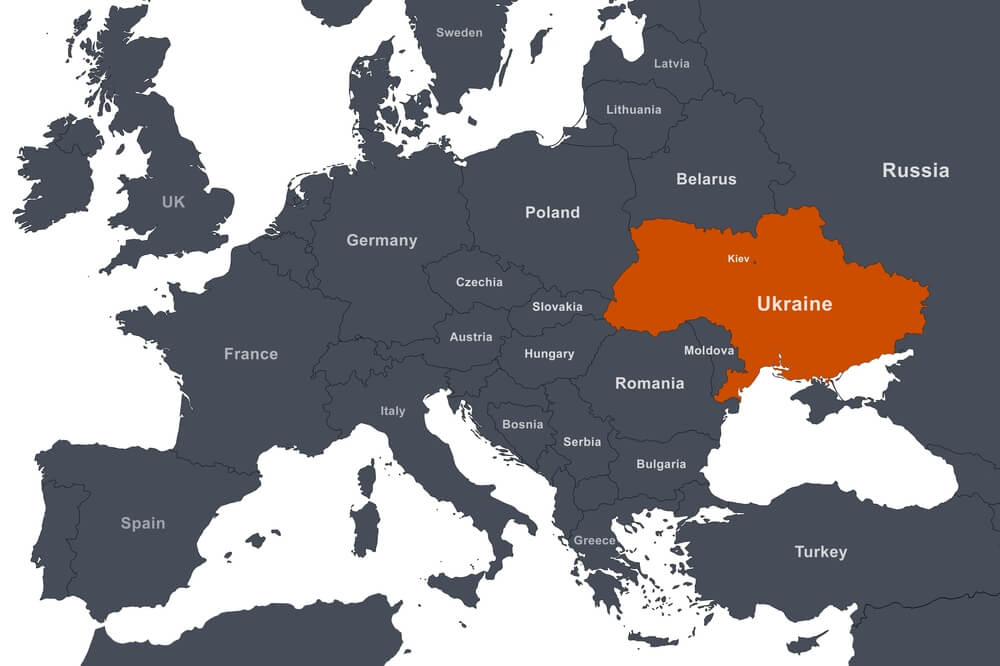Winning a war requires getting out the truth – and getting it out first – to build and solidify the credibility necessary to sustain a challenging effort.
Winston Churchill said, “In wartime, truth is so precious that she should always be attended by a bodyguard of lies.” But in the digital era, everyone becomes a combatant (and a victim) of cognitive warfare. False narratives and lies can betray a fighting force. Ukraine needs to confront this challenge as it balances maintaining Western aid to oust Russians and the realities of a plausible end-state.
Vladimir Putin’s strategic communication relies on “reflexive control,” shaping an adversary’s perceptions to Russia’s advantage. By spreading lies about motives and battlefield results, Russia uses every communication channel to persuade the U.S., the West and Ukrainians that Russia will prevail. The goal is to undermine support for Ukraine. Thus, the Kremlin is crafting a new “narrative of victory” of a demilitarized and denazified Ukraine, assuming the incoming Trump administration will end the war.
Ukraine has rarely been transparent about the use of allied funds or a realistically achievable end-state or its strategy, other than requests for more advanced Western weapons. Declarations for Russia’s total withdrawal do not seem plausible.
The U.S. Government Accountability Office has criticized Ukraine for lack of accountability in its use of funds. Both Russia and Ukraine are opaque about casualties, making it hard to assess the strategic situation, but leaked reports indicate a combined one million are dead or injured.
Ukraine must communicate a credible strategic end-state and how to achieve it. For example, while struggling in the east, Ukraine devoted forces to invade Kursk to distract Russian forces. The gambit failed: Russia is gaining eastern Ukrainian territory six times faster than in 2023. Ukrainian leaders must determine the ways and means for an achievable strategy – and what the West can do to enable such lines of effort.
Ukraine, U.S. lacking on multiple fronts.
U.S. policy is burdened by strategic dithering — supporting Ukraine enough to not lose, but not enough to be victorious. This anti-strategy approach is letting Moscow dictate escalation and draw redlines, while Western capitals vacillate on incremental additions of military aid. The West cannot afford Russia vanquishing Ukraine, but current policies create more bloodshed and risk, delaying an inevitable Russian triumph.
Ukraine confronts a nightmarish challenge in drafting and conscripting Ukrainians to augment its thinly stretched forces. Criticism of poor leadership and low morale is growing inside Ukraine’s military. Invading Kursk in Russia did not divert Russian forces but led to the insertion of 11,000 North Korean troops alongside Russian soldiers. The U.S. and NATO were timid in their responses, with the Biden administration finally allowing long-range weapons to be used on Russian soil, but only in defense of Ukrainian-occupied Kursk. This is hardly a punishment for Moscow.
Ukrainian President Zelensky deserves respect for his courage and leadership, especially choosing not to flee. Zelensky achieved two markers that Carl von Clausewitz believed essential for winning: arousing political support and defining a cause for the war. But that’s not sufficient since Ukrainian success depends upon aid from a wide coalition of domestic and international actors.
Instead of devising a realistic broad strategy, Zelensky relies on “Blank Check” support from the U.S. and the West. President-elect Donald Trump, whose views appear to lean towards a tight-fisted approach, back-handedly praised Zelensky as “the greatest salesman on Earth,” whose pleas netted Ukraine over $200 billion in Western economic and military assistance since 2022.
In October, Zelensky pitched NATO leaders to support his “victory plan,” essentially making them full partners in battling Russia. Unsurprisingly, they greeted the idea skeptically. In December, Zelensky sent another Hail Mary: Russia can keep Ukrainian territory currently occupied in exchange for Ukraine being allowed to join NATO.
An approach to end the war on better terms
We contend Ukraine can end this conflict on better terms by defining an achievable end-state through an effective strategy that disrupts Russia’s current approach. Similarly, the U.S. needs to define its strategy and desired end-state, integrating it into its broader global posture against other adversaries.
There are four steps the incoming Trump administration should pursue:
- Define a plausible end-state for the Ukraine conflict. Make hard decisions about what can and cannot be achieved – without showing an ounce of weakness to Moscow.
- Craft a strategy to achieve this end-state. Integrate this into a new “Solarium” project, echoing what President Dwight Eisenhower did to forge a grand strategy. Eisenhower convened three competing teams. Each received the same information, intelligence and parameters. Each proposed a distinct grand strategy to defeat the Soviet Union. Out of this informed discussion emerged the successful doctrine of containment. A new Solarium project could help forge a global strategy that prevents the piecemealing of Ukraine and that addresses confluent challenges such as China, Iran and the drug wars in Latin America.
- Involve Ukraine in strategic discussions but give them no veto power. Its allies are underwriting the conflict and taking risk in confronting Russia.
- President-elect Trump prides himself on statecraft. Apply this against Russia to end the war favorably on U.S. terms.
Most important here is not the content of the strategy. It’s the necessity of forging one with a measured, smart approach.
The Ukraine morass illustrates why the U.S. needs an integrated, cohesive, actionable global and regional strategy. The Biden team pontificated with its anti-strategy and let Russia control the fate of American aid and assistance to Ukraine. They acted without articulating an end-state for Ukraine other than wanting “to see Russia weakened.”
Future challenges to American power, including a revived Soviet Empire and China’s 2050 Dream of global economic supremacy, have been ignored. The U.S. needs a realistic global strategy addressing regional challenges. It is essential for ending the Ukraine conflict on favorable terms and making clear to Russia the unacceptable costs of further aggression.
By pursuing a new Solarium project, Trump’s team could end the American anti-strategy and forge an actionable global strategy consistent with Donald Trump’s goal of bringing “peace through strength.”







